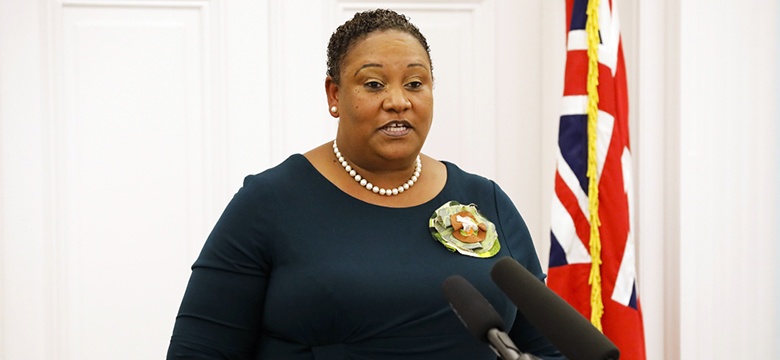
Mr. Speaker, I am pleased to introduce to the Legislature the Report of the Parole Board for 2017 - 2020, in compliance with section 8 of the Parole Board Act 2001.
Honourable Members will be aware that under the Act, the Board is an independent body empowered to make decisions governing the time and conditions of release of inmates by assessing the risk they pose to the community and to themselves.
Mr. Speaker, the Board also evaluates the likelihood that a period of supervision, upon release, will contribute to the successful reintegration of the offender into the community. The timing and conditions of release are determined based on a review of all relevant data coupled with a face-to-face interview with the applicant.
Mr. Speaker, the parole process starts at the beginning of an inmate’s incarceration. It is the inmate’s responsibility to demonstrate the ability and willingness to live a pro-social life through recreational and vocational goal setting programmes. In addition, a convicted person must have served one third of their sentence and otherwise present a low risk to the community before being considered for parole.
The Board is mandated to meet with all incarcerated persons who are eligible for consideration of parole three months prior to their parole eligibility date (PED).
Mr. Speaker, the Board was able to meet with all such persons as specified before their PED with the exception of one inmate due to the global pandemic.
Mr. Speaker, for the years under review, the Board highlighted changes resulting from a 2019 Supreme Court ruling and a female parolee at large, both of these matters had their genesis in 2016. Since the ruling, the Board has worked to change its processes of governing and handling of parole breaches and recalls.
Mr. Speaker, the Board continues to be an integral part of the criminal justice system. Honourable Members will note that the grant of parole is not taken lightly and as the Report indicates: “The safety of the community weighs heavily with the Board (and) each deliberation is done with grave consideration.” The Board extends its gratitude to its partner agencies given the challenges placed upon them to accomplish the parole process.
Mr. Speaker, I too would like to commend the cooperation and commitment to duty of the Department of Corrections and Court Services personnel for their role in assisting the Board to meet its mandate.
Mr. Speaker, during the reporting years, the Board granted parole to 37 persons and 7 parolees were recalled. Additionally, the Board met with 129 post released parolees for update reviews and 12 were deemed to have re-offended seriously enough to be recalled.
Mr. Speaker, the complexity of the Board’s decisions includes the facts of the crime, past history, treatment needs, community and family support, risk to re-offend and input by the Department of Corrections and the victim. Before inmates are considered for Parole, they must meet two elementary requirements, those being obtaining suitable pre-approved accommodation and employment.
The Board also considers suitable educational pursuits in the place of employment. Mr. Speaker, as of 31 December 2019, most inmates had been successful in obtaining employment. It is important to note that post COVID-19, employment has become more challenging.
Mr. Speaker, the Board also gave some recommendations as it relates to programming and facility improvements which the Department of Corrections and the Ministry Headquarters are addressing.
Mr. Speaker, I wish to thank the former Chairman Mr. Rolfe Commissiong, JP, and the members of the Board for their service and commitment to the administration of justice under their remit.
Mr. Speaker, I would also like to welcome the new Chairman of the Parole Board – the Honourable Derrick V. Burgess JP, MP. I am grateful for his leadership on this very important board.
Thank you, Mr. Speaker
